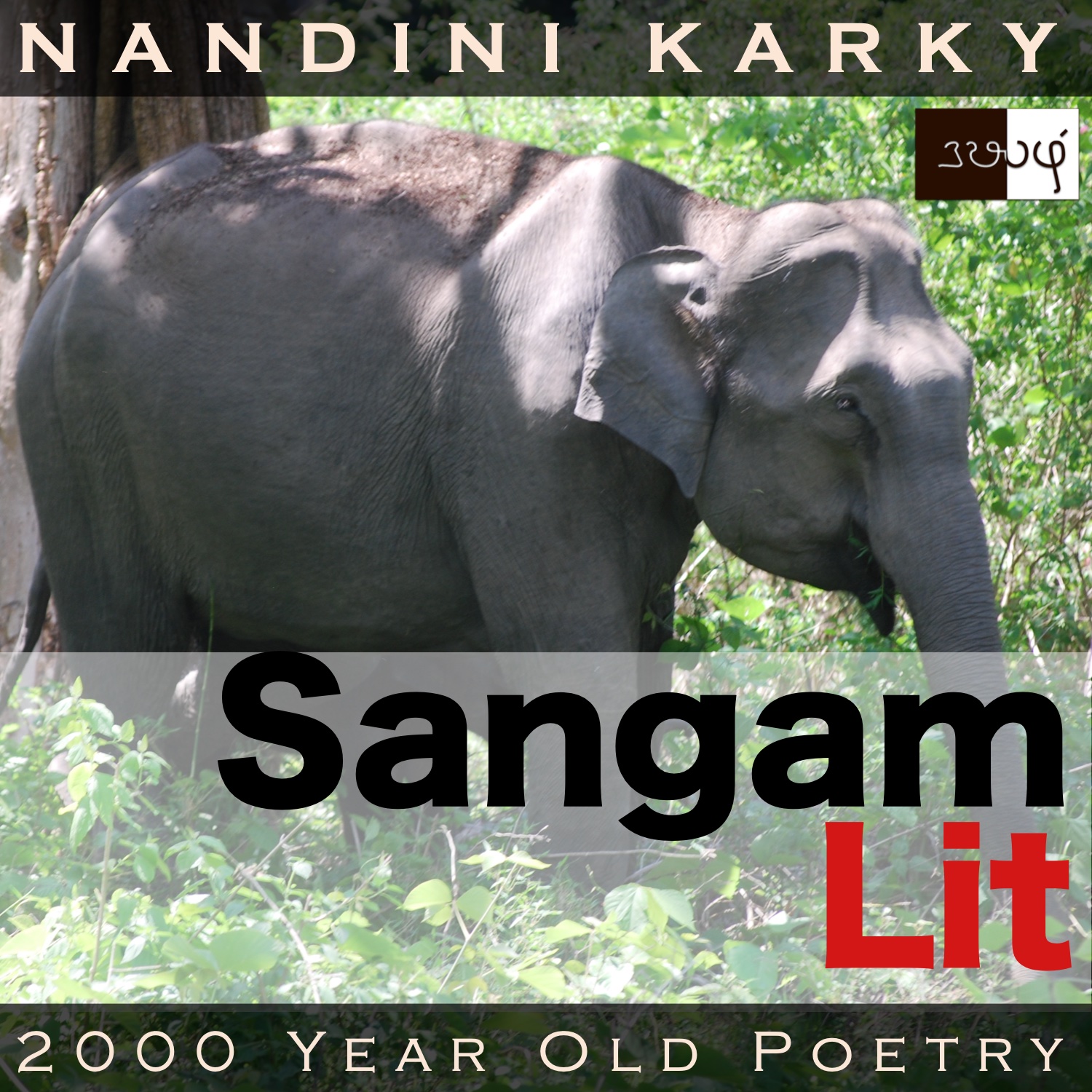Podcast: Play in new window | Download
Subscribe: Apple Podcasts | Spotify | Amazon Music | Android | iHeartRadio | TuneIn | RSS | More

In this episode, we perceive the natural correlation between animal and human life, as depicted in Sangam Literary work, Kurunthogai 136, penned by Milai Perunkanthanaar. Set in the mountains of ‘Kurinji’, the verse speaks in the voice of the man to his friend, detailing the misunderstood nature of love.
”காமம் காமம்” என்ப; காமம்
அணங்கும் பிணியும் அன்றே; நுணங்கிக்
கடுத்தலும் தணிதலும் இன்றே; யானை
குளகு மென்று ஆள் மதம் போலப்
பாணியும் உடைத்து, அது காணுநர்ப் பெறினே.
‘What love is and is not’ forms the core of this verse! The opening words ‘காமம் காமம் என்ப’ translates as ‘Love, love, they say’ and on reading only these lines, we get no clue about how they say it. As we do not have the fortune of listening to the speaker’s voice, we will have to wait for context to understand it further. In ‘அணங்கும் பிணியும் அன்றே’ meaning ‘an attacking disease, it is not’, and ‘தணிதலும் இன்றே’ meaning ‘something that will vanish, it is not’, appears negative descriptions of an entity, most probably, ‘love’ that we saw earlier. From abstract emotions, the scene changes to ‘யானை குளகு மென்று’ meaning ‘elephant chewing on green leaves’. Ending with the words ‘காணுநர்ப் பெறினே’ meaning ‘if it finds the one it wants to see’, the verse intrigues our curiosity.
What do elephants have to do with the nature of human love? The context reveals that the man had met the lady and fallen in love with her. Owing to the excitement of that new love, the man’s behaviour became changed. Noticing this, the man’s friend scolds him for losing his composure over this trivial thing called love. To his friend, the man says, “‘Love, Love’ – They speak of it disparagingly; But, love is neither a tormenting affliction nor is it something that can be shrunken and quickly vanquished too! Like ‘musth’ that takes over an elephant when it eats rich leaves, love has the tendency to appear when it sees the right person!” With these words, the man clarifies to his friend that love is but a natural feeling that takes over a person and it is not something that can be shunned.
Time to explore the nuances in this verse! The man starts by repeating the words of others who speak of love and now, we are able to understand, that like the friend, these people are speaking of love in lowly terms. It appears as if they are asking, ‘what’s so great about love?’ and concluding that ‘love is a foolish thing’. Then, he goes on to say what love is not! In many other verses, we have seen how this human emotion has been considered an affliction. Here, the man negates that belief saying love is no disease. Next, remembering how his friend had asked him to throw that feeling away and be as who he was, the man says, it is not possible with love. You cannot simply diminish it and make it disappear. Finally, he decides to equate the feeling of love to an event in the real world. To do this, the man brings before his friend’s eyes, a bull elephant which is feasting on green leaves and soon, finds itself in ‘musth’, that state when the bull elephant becomes aggressive and seeks out a female. As a final shot, the man says that’s what love is – it will naturally appear when the right person comes along!
The modern nature of the thought in this verse stuns me! First of all, the poet looks to the animal world to explain a human emotion. Long before evolutionary biology, here is a subtle understanding of the connection between humans and animals. A man understands his rushing hormones by looking at an elephant in musth and indeed, the same thing is happening. Another little facet that fascinated me here was how the man seems to think that eating green leaves makes the elephant go into ‘musth’. On doing some research about whether there was indeed a particular kind of leaf that caused this reaction in elephants, I came across a different fact. Apparently, only when these bull elephants are well fed, do they even go into musth. I read that if elephants are deprived of good food during that formative period, they do not enter this crucial stage in reproduction. So, the man linking the elephant eating green leaves and experiencing musth is not so far-fetched as one may think. Finally, the precise understanding of the nature of love, as echoed by the words in this verse that it is something natural, an animal instinct that appears when the heart finds the right person, is a concept that even humans in the twenty-first century with all their new-fangled scientific research on the psychology of love fail to fully grasp. An instance of the instinctive knowledge of all facets of life that seems to shine in ancient poetry!




Share your thoughts...